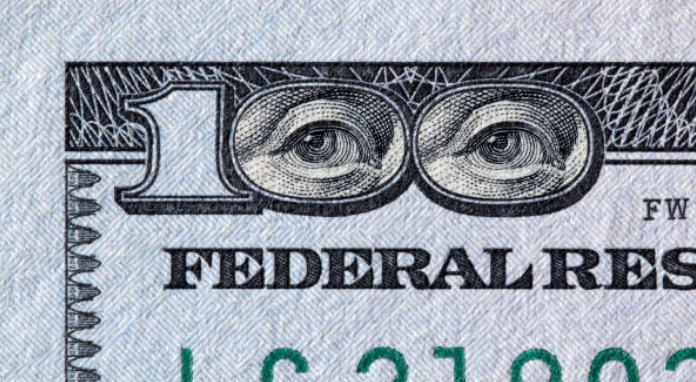OFAC Continues Ukraine-Russia Sanctions Crusade with Penalty Against American Insurance Firm
As we approach the two-year anniversary of Russia’s unprovoked invasion of Ukraine, the effects of the military conflict continue reverberate on the global financial system. Economic sanctions levied by dozens of major powers around the world have rained down on Russia and Crimea in wake of the onset of the Russo-Ukrainian war, creating a uniquely complex regulatory landscape that entities located both domestically and abroad have been forced to navigate. The United States Treasury Department’s Office of Foreign Assets Control (OFAC) has set the standard for its international counterparts with respect to their sanctions program targeting Russia – a program first implemented in 2014. The program specifically addresses potential threats posed by the actions and policies of persons attempting to undermine democratic processes in Ukraine or have threatened the peace, security, stability, sovereignty, and territorial integrity of Ukraine and/or contributed to the misappropriation of Ukraine’s assets. The program also includes measures targeting individuals operating in the arms sector and government officials of the Russian Federation, as well as individuals/entities operating in the Crimea region of Ukraine.
In accordance with these evolving sanctions, the Treasury recently announced a major settlement reached with a notable U.S.-based insurance company found to be repeat violators of these staunch measures. Privilege Underwriters Reciprocal Exchange (PURE) Insurance – headquartered in White Plains, New York – formally agreed to pay a whopping $466,200 total to OFAC to settle potential civil liability related to 39 apparent violations of the regulator’s Ukraine/Russia-related sanctions. PURE primarily offers insurance policies and coverages for luxury homes, automobiles, art collections, jewelry, and watercrafts. In 2010, the firm was discovered to have issued a private fleet auto insurance policy, a jewelry and art insurance policy, and two high value homeowners insurance policies to Medallion Inc. of Panama. From that point, these four policies were renewed on an annual basis through 2020. As it turned out, Medallion Inc. only had one shareholder: infamous Russian billionaire oligarch Viktor Vekselberg. Further compounding matters, email correspondence between PURE Insurance and Medallion showed that PURE’s Underwriting Manager was aware of Vekselberg’s role with the company – though at the time, neither Vekselberg nor Medallion were subject to U.S. sanctions.
Vekselberg was ultimately added to OFAC’s List of Specially Designated Nationals and Blocked Persons pursuant to Executive Order 13662 on April 6, 2018. According to OFAC’s “Fifty Percent Rule”, any property and interests in a property owned either directly or indirectly by a sanctioned person would be blocked if they owned more than 50 percent of the property. Of course, as the sole owner off Medallion Inc., Vekselberg crossed that 50 percent threshold. In April of 2018, both Vekselberg and Medallion became blocked. In spite of this information becoming public knowledge, PURE chose to continue its relationship with the two entities, proceeding to collect a total of 38 premium policy payments totaling $308,391 between May 1, 2018 and July 24, 2020, while also paying out $7,500 to Medallion over a policy claim in 2020. All told, PURE engaged in 39 transactions totaling $315,891 over this nearly two-year period. Adding insult to injury, PURE was also found to have failed to appropriately upload beneficial ownership information to OFAC and failed to maintain compliant onboarding processes dating back to 2010 when Vekselberg first became a client.
“PURE’s underwriters failed to upload the shareholder information from the corporate disclosure statement into PURE’s underwriting systems where corporate ownership information is stored,” said OFAC. “Further, at the time Medallion was onboarded in 2010, there was not a requirement for prospective non-U.S. policy holders to be escalated for review and approval by PURE’s management and compliance staff.”1
This is not the lone OFAC settlement involving a U.S. entity in which Vekselberg was a key player however. In April of 2023, a New York attorney pleaded guilty to participating in a conspiracy to commit money laundering scheme to make approximately $3.8 million in U.S. dollar payments to maintain six real properties in the United States that were owned by the oligarch. In making their determination in issuing this latest civil monetary penalty, OFAC claims that PURE Insurance did not do nearly enough to meet its sanctions obligations, especially when considering it had reason to know it was dealing with a blocked person. They also failed to address the serious deficiencies in their onboarding program that led to Medallion remaining a client over this lengthy period, this until the company received a government inquiry in 2022 that essentially forced its hand.
“This case demonstrates the importance of implementing and maintaining effective, risk-based sanctions compliance controls,”1 the agency said. “Such controls should capture and incorporate all relevant available information to conduct responsive and regular screening, including risk-based steps to comply with OFAC’s 50 Percent Rule and to account for changes to applicable sanctions.”1 The settlement also highlights the need for companies to continually reassess their risk while assessing both existing and new clients, taking into account current geopolitical factors.
Companies can avoid potential non-compliance and accelerate their customer and employee review processes by searching instantly against OFAC lists, Negative News, Corporate Ownership, and Criminal Backgrounds using Global RADAR’s software solutions. Backed by artificial intelligence, advanced machine learning and intelligent analytics, Global RADAR allows financial institutions small and large to maintain sanctions compliance more effectively than ever before.
Citations
- “OFAC Settles with Privilege Underwriters Reciprocal Exchange for $466,200 Related to Apparent Violations of the Ukraine-/Russia-Related Sanctions Regulations.” Office of Foreign Assets Control, Department of the Treasury, 21 Dec. 2023.

